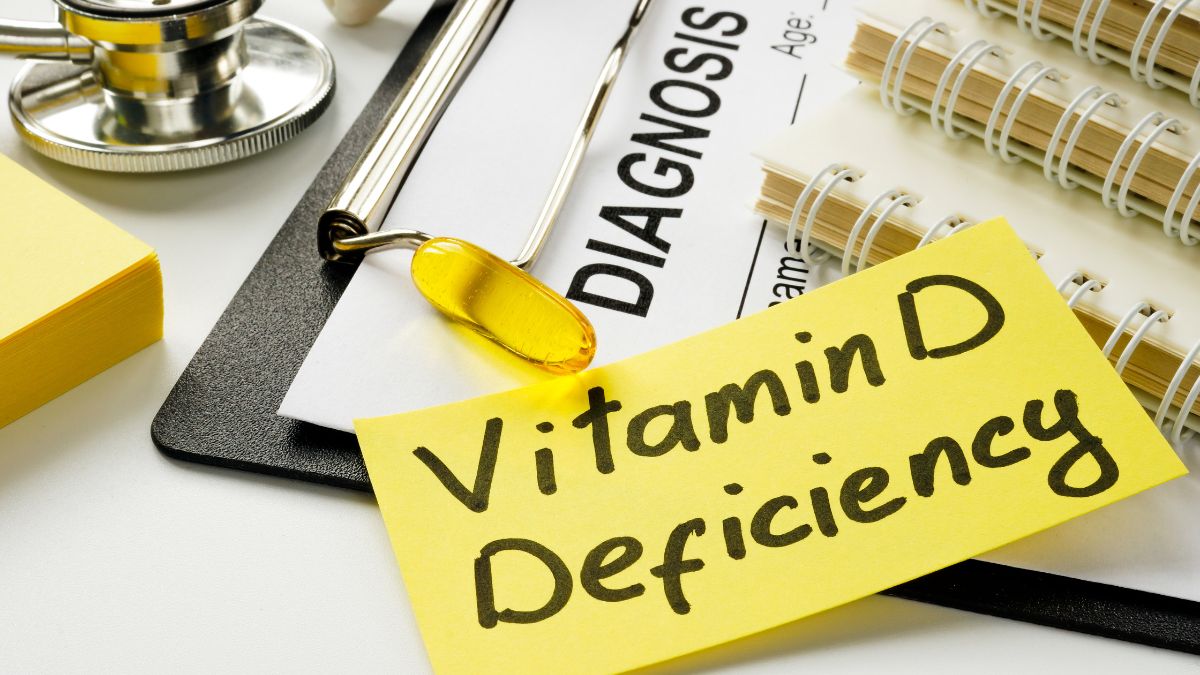- By Priyanka Munshi
- Tue, 22 Aug 2023 04:14 PM (IST)
- Source:JND
Vitamin D Deficiency: Various body activities are supported by vitamin D, which is essential for preserving human health. Its main job is to control calcium and phosphorus levels, both of which are necessary for healthy skeletal structures, including strong bones, teeth, and gums. Vitamin D has advantages for the body, but it also supports a healthy immune system and the body's resistance against illnesses.

In addition to supporting cardiovascular health, vitamin D also affects cell development, inflammatory regulation, and blood vessel health. For people of all ages, having enough amounts of vitamin D is essential because deficiency has been related to diseases like osteoporosis, autoimmune disorders, and an increased risk of infection. A suitable intake of this essential vitamin can be made possible through diet and sunlight exposure.

Numerous health issues and difficulties can result from vitamin D insufficiency. A weakened immune system, which can leave people more vulnerable to infections and illnesses, has been related to vitamin D deficiency. Low levels of vitamin D have also been linked to mood disorders like sadness and seasonal affective disorder because the nutrient is important in the creation of serotonin, a neurotransmitter that affects mood. Furthermore, low vitamin D levels have been linked to a number of chronic illnesses, such as diabetes, heart disease, and several types of cancer. Therefore, it's critical for people to consume enough vitamin D in order to preserve their health and wellbeing.
Recommended For You
Dr. Atul Bhasin, Senior Director, BLK Max Super Speciality Hospital, Internal Medicine, exclusively told Jagran English how to ensure you have enough Vitamin D, even with the sun out.
Also Read: Raksha Bandhan 2023 Special: Try These Mouth-Watering Recipes To Enjoy With Your Family This Rakhi
Dr. Atul said that human skin produces vitamin D when exposed to the ultraviolet B (UVB) rays of the sun, but total sun exposure is decreasing and it also depends on many other conditions. Regular exposure of body parts like the face, arms, legs, and back to regular sunlight is all a person needs to get enough vitamin D. Natural sources of vitamin D are very few, so we need to select our dietary supplements very judiciously.

Vitamin D-Rich Vegetarian Foods
Vegetarians can increase their vitamin D levels by consuming adequate amounts of mushrooms. Wild edible mushrooms and mushrooms grown in artificial UV light have very high vitamin D levels. The additional advantage of these mushrooms is that they maintain high levels of vitamin D even after a prolonged shelf life. Other vegetables like spinach (Paalak), kale (Ghobhee), okra (Bhindi), and soybeans Cheese is another good source of vitamin D, said Dr. Atul.

Vitamin D-Rich Non-Vegetarian Foods
Dr. Atul said that all non-vegetarians can add eggs along with the yolks. Egg yolk is a good source of vitamin D. Fishes like sardines, salmon, and oily fish can be added to the diet to augment the vitamin D in the diet.
He concluded by saying that "the government policies of different countries to allow fortification have gone a long way in reducing the incidence of vitamin D deficiency. Fortification of. Cow’s milk and beverages like almond milk, orange juice, yogurt, tofu, cereals, and other ready-to-eat cereals are often fortified with vitamin D. The most reliable method for correcting the deficiency is by simply adding medical supplements under the supervision of a medical practitioner".






